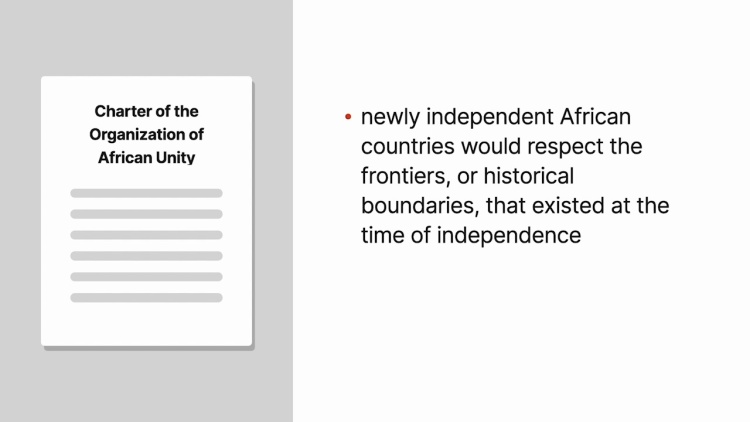Frontier Dispute Case (Burkina Faso/Mali)
International Court of Justice
1986 I.C.J. 554
- Written by Megan Petersen, JD
Facts
Burkina Faso (previously the Republic of Upper Volta) and the Republic of Mali each obtained independence in 1960 following decolonization. Later, the Organization of African Unity, comprised of African Heads of State, was formed. In 1964, the Organization of African Unity met in Cairo, Egypt and issued a resolution declaring that all member States of the Organization of African Unity “solemnly…pledge themselves to respect the frontiers existing on their achievement of national independence.” This resolution codified into law the age-old international principle of uti possidetis. In 1975, the Head of State of Mali made a statement indicating a lack of respect for the existing boundaries between Mali and Burkina Faso. Mali and Burkina Faso later submitted to a Chamber of the International Court of Justice (ICJ) the question of the proper demarcation of boundary lines between the two States. In considering the case, the ICJ discussed the principle of uti possidetis.
Rule of Law
Issue
Holding and Reasoning ()
What to do next…
Here's why 907,000 law students have relied on our case briefs:
- Written by law professors and practitioners, not other law students. 47,100 briefs, keyed to 996 casebooks. Top-notch customer support.
- The right amount of information, includes the facts, issues, rule of law, holding and reasoning, and any concurrences and dissents.
- Access in your classes, works on your mobile and tablet. Massive library of related video lessons and high quality multiple-choice questions.
- Easy to use, uniform format for every case brief. Written in plain English, not in legalese. Our briefs summarize and simplify; they don’t just repeat the court’s language.





